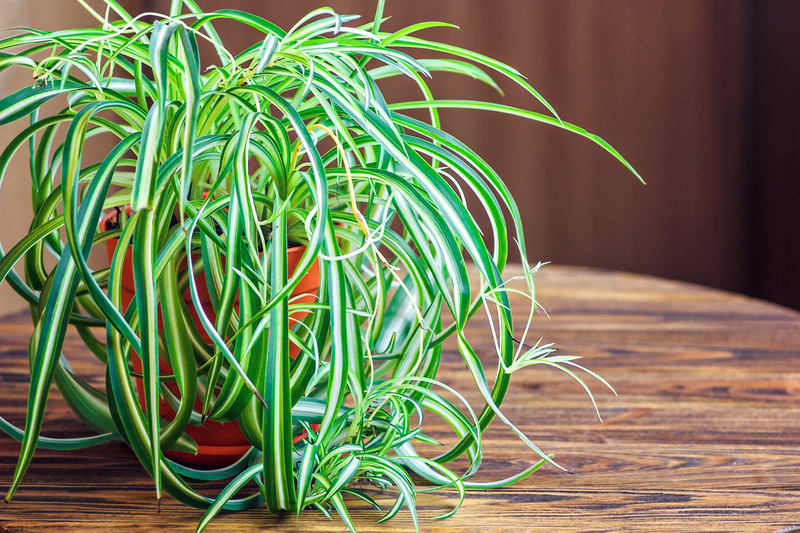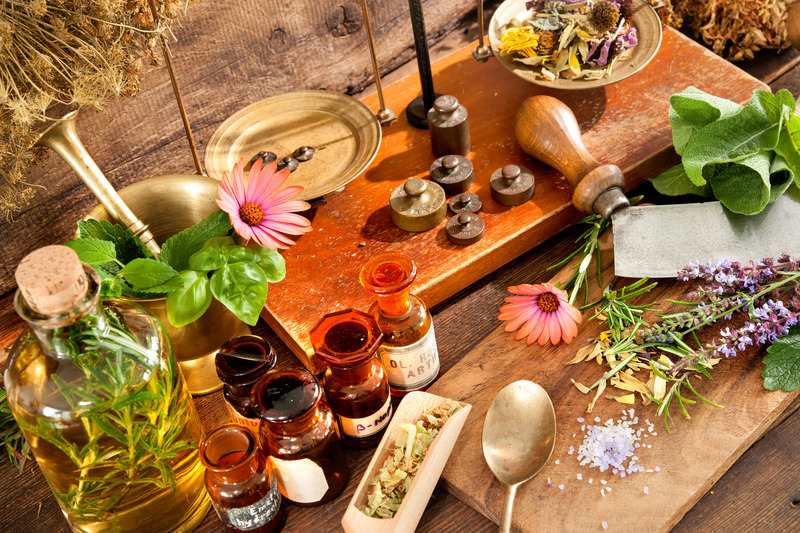Set your garden up for success with these 9 essential beginner tips
Posted on 12/09/2025
Set Your Garden Up for Success with These 9 Essential Beginner Tips
Gardening is a rewarding journey that offers beauty, food, relaxation, and a profound connection with nature. For beginners, starting a garden can seem daunting, but with the right guidance, anyone can cultivate a thriving garden. Whether you have a sprawling backyard or just a modest balcony, these 9 essential beginner gardening tips will help set your garden up for lasting success. Follow this comprehensive guide to turn your gardening dreams into a blooming reality.
1. Assess Your Space and Choose the Right Location
Before you plant a single seed, it's critical to evaluate your available space and assess its suitability for gardening. A garden's success depends largely on where you place it.
- Sunlight Exposure: Observe how much sunlight your chosen spot receives each day. Most edible and ornamental plants thrive with at least 6 hours of direct sun.
- Accessibility: Pick a location that's easy to reach with tools, water, and for harvesting.
- Protection: Try to position your garden away from strong winds, heavy foot traffic, or areas where pets and wildlife may disturb it.
- Soil & Drainage: Look for areas with loose, well-drained soil or a location where you can build suitable raised beds.
Selecting the correct garden spot is the foundation for a garden that will flourish season after season.

2. Understand Your Soil and Improve It
Your soil is the heart of your garden. Knowing its type and quality is crucial. Conduct a simple soil test to determine its texture (clay, sandy, loamy), pH, and available nutrients.
- Test Kits: Affordable soil testing kits are available at garden centers and online. They give instant insight into pH and nutrient levels.
- Composting: Regularly adding compost or organic matter enriches the soil, improves drainage, increases fertility, and boosts beneficial microorganisms.
- Amendment: Based on your soil's needs, amend it with materials like aged manure, peat, or perlite to ensure optimal growing conditions.
Healthy soil equals healthy plants--investing effort here is key to a successful first garden.
3. Select Easy-to-Grow Plants for Beginners
Not all plants require the same level of care. As a beginner, choose hardy, low-maintenance varieties that are known for their resilience.
- Vegetables: Lettuce, radishes, beans, peas, cherry tomatoes, and zucchini are beginner-friendly and yield quickly.
- Herbs: Mint, basil, chives, parsley, and oregano often thrive, even in small containers.
- Flowers: Marigolds, sunflowers, pansies, and zinnias offer vibrant colors with minimal fuss.
Start with a manageable number of easy plants, then expand your garden as your confidence grows.
4. Invest in Basic Gardening Tools
Quality tools make gardening enjoyable and efficient. For your first garden, a few essential items are all you need:
- Hand trowel (digging small holes and transplanting)
- Pruning shears (trimming stems, harvesting herbs)
- Garden gloves (protecting your hands)
- Watering can or hose (irrigating your plants)
- Rake and/or hoe (for soil prep and weed control)
Properly caring for your tools (cleaning and storing them dry) will prolong their life and ensure effective gardening.
5. Plan and Prepare Before You Plant
A little organization goes a long way in making your garden thrive. Take time to create a rough plan:
- Sketch your garden layout: Decide where each plant will go based on sunlight needs and mature size.
- Time your planting: Research the best planting times for your chosen varieties. Use local frost date information to guide you.
- Succession planting: For continuous harvests, plan staggered plantings of fast-growing crops.
A thoughtful garden blueprint keeps your project organized and maximizes every inch of space.
6. Master Watering Techniques
Proper watering is pivotal to the success of your beginner garden. Both underwatering and overwatering can cause problems.
- Check soil moisture: Stick your finger into the soil up to your first knuckle. If it feels dry, it's time to water.
- Water deeply, not frequently: Encourage deep root growth by watering less often but thoroughly.
- Water at the base: Direct water to the roots to prevent disease.
- Early morning is best: Reduces water loss from evaporation and allows foliage to dry, reducing disease risk.
Establishing a consistent watering routine can dramatically boost your plants' vitality.
7. Embrace Mulching for Moisture and Weed Control
Mulch is your garden's best friend. It suppresses weeds, retains moisture, and improves soil as it breaks down.
- Organic mulches: Shredded leaves, straw, compost, wood chips, or grass clippings are excellent choices.
- Apply generously: Spread 2-4 inches around plants, leaving space near stems to avoid rot.
- Weed reduction: Mulching creates a barrier that minimizes weed emergence.
By mulching your garden beds right from the start, you reduce maintenance and let your plants focus on growing.
8. Monitor for Pests and Diseases
One of the secrets to a successful garden is catching problems early. Watch your plants closely for any changes.
- Look for signs: Yellowing leaves, chewed edges, spots, or unusual growth could indicate trouble.
- Identify the culprit: Research common garden pests (aphids, slugs, caterpillars) and beneficial insects (ladybugs, lacewings).
- Use organic controls: Where possible, hand-pick pests, use barriers like netting, or treat with safe, natural products such as neem oil or insecticidal soap.
A well-monitored garden is less likely to suffer serious setbacks, helping you achieve gardening success from the outset.
9. Keep Growing and Learning
The most important tip for any beginner is to enjoy the process. Gardening is a blend of science, art, and patience. You'll learn best by doing:
- Keep a garden journal: Track what you planted, when, and any noteworthy observations or challenges.
- Connect with gardeners: Join local gardening clubs, online forums, or social media groups to ask questions and share tips.
- Don't fear failure: Every mistake is a stepping stone toward becoming a more skilled gardener. Adapt, try new things, and have fun!
As your confidence grows, so will your plants--and soon, you'll have a successful garden to be proud of.

Bonus Tips for Ongoing Garden Success
- Rotate crops: Changing plant locations annually reduces soil-borne diseases and balances nutrients.
- Fertilize judiciously: If your soil needs a boost, opt for slow-release or organic fertilizers.
- Provide support: Use stakes, cages, or trellises for climbing or tall plants to ensure healthy growth and easy harvesting.
Conclusion: Cultivate Success in Your First Garden
Setting your garden up for a bountiful season doesn't require a green thumb--just the right information and a willingness to learn. By following these 9 essential tips for beginner gardeners, you lay a solid foundation for a thriving, vibrant oasis right outside your door. Patience and observation are the keys; every garden is unique and every season offers new lessons. Start small, stay curious, and let your love for plants lead the way!
Ready to start your gardening adventure? Grab your tools, roll up your sleeves, and watch your own flourishing garden come to life.
Latest Posts
Sleek and Stylish: Hedge Trimming Techniques Reimagined
Gardening Hacks: Keep Your Plants Thriving in Winter
Cultivate Positivity: Gardening's Role in Climate Change
Set your garden up for success with these 9 essential beginner tips

